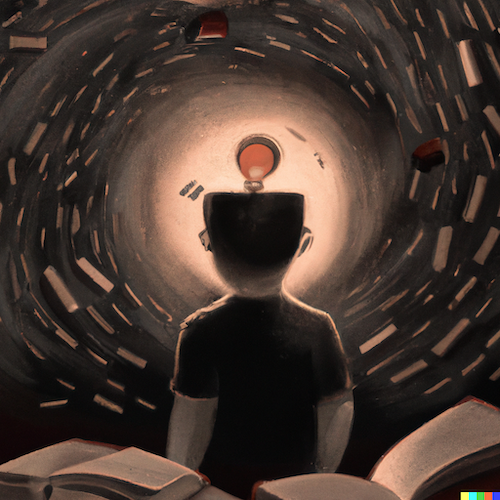Overestimating Knowledge

Image generated using DALL·E
They say you don’t understand something until you try writing about it or explaining it.
Why is that?
Why do we assume we understand more than we do?
At what point does information go from being completely unknown to prompting overconfidence?
Let’s explore.
I think it’s because we associate familiarity with understanding.
We assume that because we’ve heard an idea once, we get it. We know it.
But we often don’t know it at all. We just think we do.
It’s not until we start writing or talking that we realize how much we don’t know.
And this makes sense, the more I think (and write) about it.
When writing, we’re not just off the hook after a topic initially comes into our awareness. We can’t just stop at familiarity and move on.
Instead, we’re on the hook to fill a blank page with lots of information about a subject.
Or fill a conversational void (or period of silence) with useful discourse around it.
We must structure our thoughts to fill the space.
Which completely changes the standard for what it means to “know” something. Familiarity isn’t enough.
Maybe it’d be helpful to adjust our language.
We can speak in terms of:
- To know of (familiarity). I’ve heard of the idea/subject and I’m aware that it exists.
- To write about (understanding). I get it, so much so that I can write useful information about it.
- To teach (understanding). I get it, so much so that I can help other people understand it in real time.
And then, there’s no need to say that we “know” something.
Instead, we can simply distinguish between familiarity and understanding.
Maybe then we’ll get a little closer to accurately representing how much (and how little) we actually know about the world.
– Mar. 12, 2022